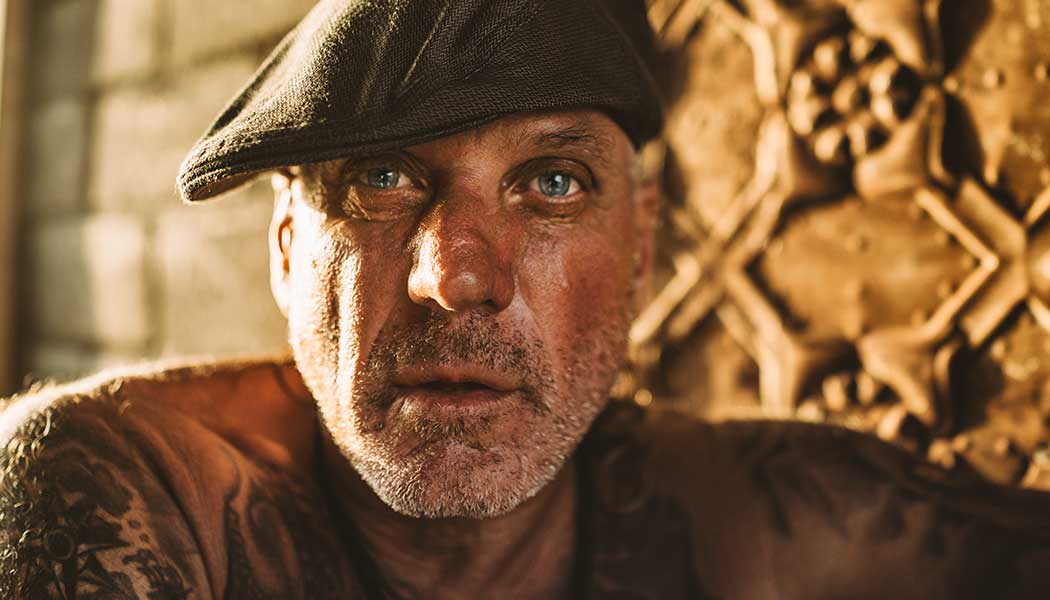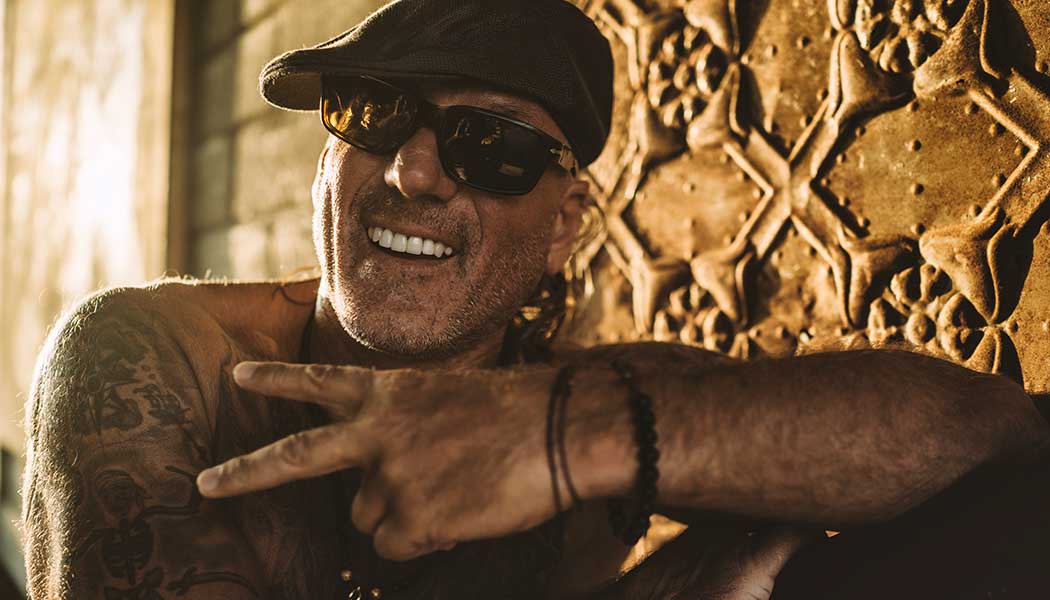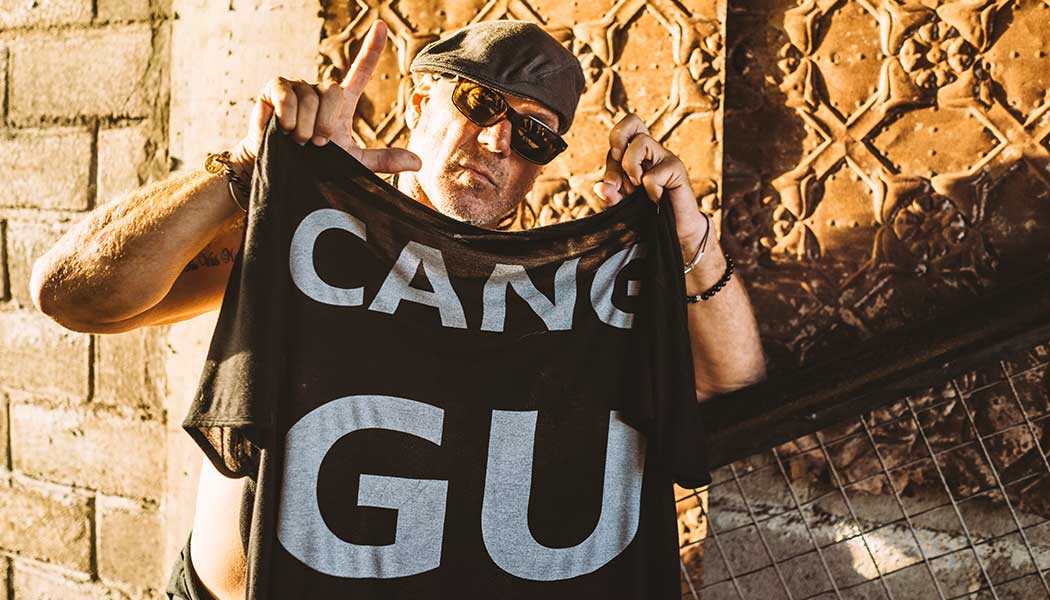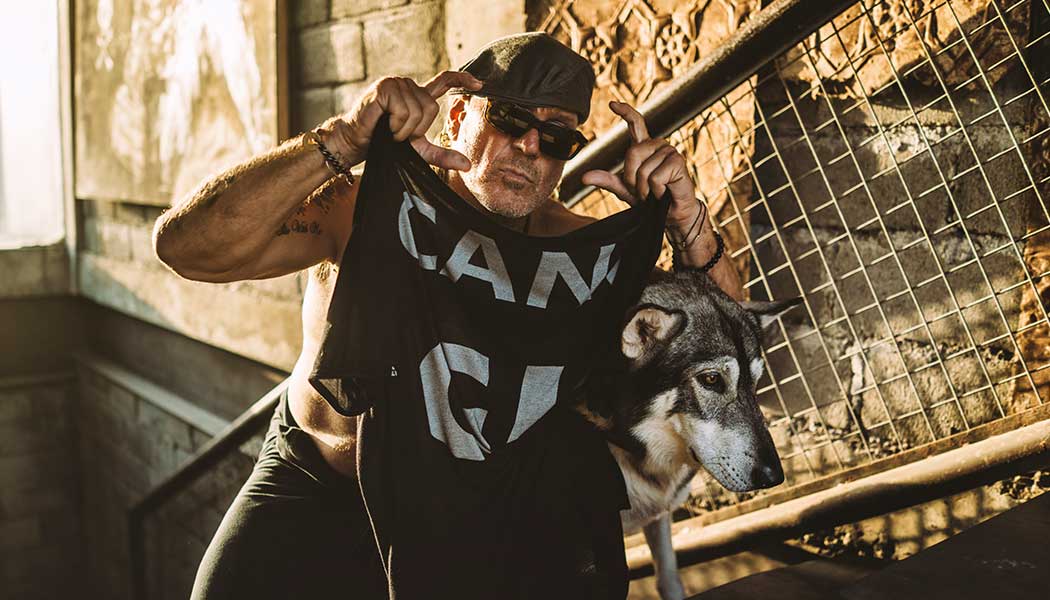Pioneer Mark Baker introduced cold press juice to Bali, one of many firsts in a life well lived. Interview: Stephanie Mee. Images: Jason Reposar.
You’ve worn many hats in your life including circus performer, champion skateboarder, ‘godfather of the New York club scene’, and the owner of Townhouse here in Bali. Not so long ago you reinvented yourself yet again. How did your most recent transformation come about?
This chapter started about seven years ago when I was winding down my New York club life. I’d been working and partying in the club scene for more than 30 years and needed to slow down and lead a healthier lifestyle. I was introduced to cold pressed juicing and raw vegan foods by my partner Marcus at the Juice Press and I knew I wanted to follow this healthier path moving forward. So when I moved to Bali six years ago, I opened a juice bar at Townhouse and we had some success with it, but Bali wasn’t quite ready for juicing then. After Townhouse closed, it was the first time in my life I wasn’t working nights, so I started getting up at dawn visiting farms and learning about organic farming. I decided to revisit the juicing with In the Raw, and the timing was right.
Tell us a bit about the ethos behind In the Raw Beachgarden.
We hand-make everything, so nothing comes out of a bottle. There are no preservatives and wherever possible we use organic produce and try to source everything from local producers. We know where everything comes from and do our best to see that it’s ethically grown or raised, and we go the extra mile to steer clear of anything plastic. In fact, we’re currently making cool, light carry bags and shoulder bags to give away so everyone can carry one in the car or bike. Bali is our collective home and as business leaders we must do all we can to minimise our footprint here and lead by example.
How have you seen perceptions shift in Bali when it comes to earth-friendly fare and business practices?
We have a long way to go, but it’s definitely going in the right direction. The recent ban on plastic bags is a huge step forward, and the young generation is leading the charge. Everyone must do their bit, however small or inconvenient at first, to change old habits. I see many businesses making the effort to be responsible, like saying no to straws and plastic take-away materials, but these are mostly foreign-owned businesses that are aware and have the budget for alternatives. This has to trickle down to local warungs and all businesses, as the plastic culture along with massive pesticide use needs to be addressed and remedied.
You’re a huge champion of organic farming here in Bali. Can you tell us a bit about the work you’ve been doing with that?
Organic farming is relatively new here, though there are a handful of producers who have been doing it for a while. As I travel around the island meeting farmers, cooperatives and government officials, the reality is that organic farming is complicated, difficult and expensive. For example, organic certification can cost up to $10,000 to $12,000. There’s no way a local farmer can afford this, so cheaper local certification is necessary. Next, without pesticides produce gets eaten by bugs and damaged easily, so we have to make our own natural pesticides. Getting produce from farmers who cannot transport what they grow daily to buyers is also an issue. I’m proud to say we have a network of farmers that grow completely organic for us and we guarantee to buy and transport their produce, so by the time this comes out, all of our juices and most of the restaurant produce will be 100 percent organic produce.
We often hear you say that it’s all about balance, and that sentiment is also ingrained in Balinese culture. However, Bali’s ecosystem doesn’t seem to be very balanced at the moment. What do you think the most pressing issues are now?
Bali is suffocating in trash and single-use plastic. It’s insane to me how there is no real trash and recycling system. Some of the poorest third world countries have better recycling and waste management systems than Bali, a wealthy tourist destination. The new governor seems to be serious about cleaning Bali up, so that’s a positive development. It has to change. The terrible images of Bali’s beaches and ocean covered and drowning in plastic went worldwide. All Bali businesses must be responsible and Bali communities have to stop using single-use plastics and reuse and recycle.
What do you see as some of the solutions to those issues?
There are a lot of new initiatives coming out by individuals and bigger companies. We work with Alex Tsuk of RefillMyBottle, Christian Fritz at ecoSmart Hub, Anastasia and Bluemoloko for carry nets for reusable bottles, Hugo of DFMP and his beach cleaning initiative, Holy Water for their reusable carry bottles and water alkalising systems, and Adrian Reed and Mark Copeland with Earth Ledger. All of these initiatives together help turn the tide. But there still needs to be more awareness at the school level to help people understand it’s in their best interests to change now. If we all make small changes, it will have a massive impact. We are all guilty of being part of the problem, so we just have to try to be better every day in every way possible.
In an ideal world, how would you envision Bali 20 years from now?
I like to be positive about the future and not a grumpy old expat like those who crow, “You should have been here back when. Now it’s ruined.” I think Bali has a way of adapting to pretty much anything in its own unique way. Bali’s culture, community and religion are the glue that holds it all together. I hope and think Bali will develop more responsibly. In the future I see more restrictions on construction and proper waste management. I think the new generation sees the mistakes that have been made in the rush to develop Bali and will change things for the better. It’s always going to be busy and that’s good for the entire economy of Bali, but the standard of living should reach all corners of the island without harming nature.
You’re living proof that if we put our minds to it, we can all make changes to better our lives and the world around us. What advice would you give others who also want to shift gears?
Have the courage to follow your dreams and make a life that generally makes you and if possible others around you happy. It’s not easy to make change and step into the unknown, but if you never try, you’ll never know. At this time in the world, it’s never been easier to just up and follow your dreams. That ‘work 30 years in the same job and get the big house and picket fence’ carrot is done and dead. Go on an adventure and try something you’ve always wanted to do. When you love your work, it’s never work.
What does the future hold for Mad Mark Baker?
Bali! Honestly I’m so happy here and excited to see the potential for change and how we can play a positive role in helping to bring healthy sustainable options to everyone. I think Bali is going to become one of the world’s leading places for health and next-level wellness. I’m just so happy to be here at this moment doing what we are doing and spending every minute of my days with my best friend … my wolf dog Merlin. What could be better than that?




































